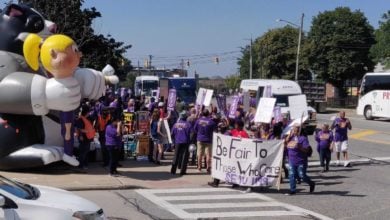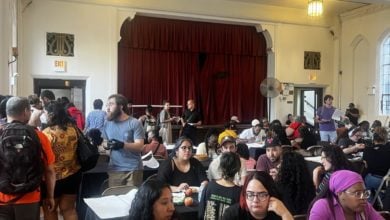Nursing homes and other long-term care facilities are among the places which have been hit hardest by COVID-19. New York alone has reported almost 5,000 deaths in long-term care facilities across the state and, as of May 2, there have been more than 16,000 reported deaths from the virus, of elders and workers alike, in care facilities throughout the United States.
This data is shocking, and the reality is likely worse. Due to underreporting and lack of transparency (over a dozen states have not even published the names of nursing homes where COVID-19 infection is present!) there is a high probability that the total lives lost could be even higher. In fact, as an illustration of the government’s wholly inadequate response, until very recently the Centers for Disease Control and Prevention and Centers for Medicare and Medicaid Services were not even collecting national data regarding COVID-19 in nursing homes.
As the COVID-19 crisis rages on and the death toll continues to rise, government agencies are continuing to double down on their downright criminal disregard for elders and nursing home workers. Currently, long-term care facilities are required to have an infection preventionist working at their facilities at least part-time. CMS has proposed, however, to alter this requirement from part-time to “sufficient time,” citing a desire to “reduce the regulatory burden” on long-term care facilities.
What does this rule effectively do? In short, it rolls back the infection control requirements that long-term care facilities have to abide by. In requiring only “sufficient time” for infection preventionists to be present, it allows the management of facilities the ability to determine what is “sufficient.” Given the dominant model of private, for-profit elder care in this country, “sufficiency” could be substituted for “efficiency” – and what is most efficient to management and corporate shareholders is profits, not the provision of quality care.
Even prior to the COVID-19 pandemic, a large number of long-term care facilities were failing to maintain appropriate standards of hygiene and disease prevention. Now, during an intense crisis in elder care, an easing of infection prevention regulations points in one direction: toward increased spread of a virus that is especially dangerous for the elderly population.
Long-term care facility workers across the country are already working under incredibly dangerous conditions. A constellation of issues – lack of personal protective equipment, chronic understaffing, no hazard pay or paid sick leave – has many workers and elderly residents in a vulnerable position. This proposed rule change is just another occupational hazard.
Deregulation of infection control in long-term care facilities, then, means allowing the drive for profits to more effectively trample over the rights and safety of elders and the workers who provide care for them. At a time where every long-term care facility should have infection preventionists on staff full-time, the capitalist government has shown that what is in their best interest is the complete opposite of what is in the best interest of the people. It is time for us to stand in solidarity with elders and care workers, and demand an end to the destructiveness of for-profit healthcare!




